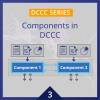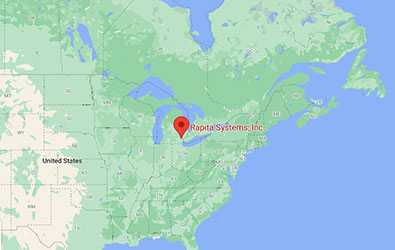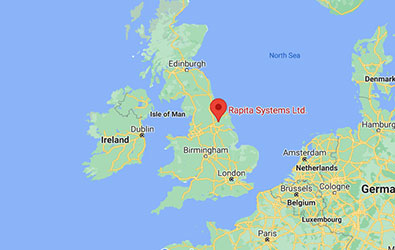In December, Rapita Systems were pleased to welcome Dan Iorga of the Multicore Programming Group, Imperial College London, to our York offices.
Researching for his PhD, Dan's focus is on worst-case execution time analysis of multicore systems. The need to use multicore processors in the aerospace industry is growing, prompting the FAA to release the CAST-32A position paper. This is an area Rapita Systems has been researching for over 10 years, developing the first commercially-viable solution.
During his visit, Dan and our senior multicore engineer, Dr Christos Evripidou, compared their approaches to generating microbenchmarks, which create configurable degrees of contention on shared hardware resources in multicore systems, subsequently generating interference between cores. Microbenchmarks are a key component of Rapita's multicore timing analysis solution.
We conducted a short interview with Dan during his visit, the transcript of which can be found below:
What are the biggest challenges of using multicore within the safety-critical domain?
Manufacturers optimize their processors for average performance. But in the safety-critical industry we are actually interested in the worst case performance. Multicore processors are especially difficult to reason about in terms of worst case behavior as they are more complex.
For example?
Let's say you are designing a car, [and] you are interested in the airbag system of that car. You want that airbag to deploy exactly when you planned it to deploy, not one microsecond later, not one microsecond earlier.
So Multicore processors are especially difficult to reason about because they are more complex and therefore have more shared resources that can cause a lot of interference.
Where do you think your multicore worst-case execution time research can be applied in the industry?
There are a couple of industries that are interested in real time. I can think of the aerospace industry, the automotive industry and even the medical industry.
If you have an airplane's landing gear, or the airbag of a car, or the pacemaker of a patient, you want all these devices to work without any kind of a delay.
The biggest challenge you have in multicore systems is it's difficult to determine all the subtle interactions that you have between the cores of your system.
Also, industry manufacturers might choose not to disclose all of these details in order to gain a competitive advantage.
In my research, I focus on automatically uncovering these subtle interactions in order to expose the worst-case performance, the flaws of a processor.
What is your approach to generating microbenchmarks?
My approach for evaluating worst-case execution time on multicore systems relies on automically generating microbenchmarks. These automatically generated multicore benchmarks might uncover some subtle interactions in multicore processors that a human expert might not think of, or might miss out.
Video version
Thanks for visiting, Dan!
Rapita Systems thanks Dan for his visit and looks forward to catching up with him in the future.
If you'd like to find out more about our Multicore Timing Analysis Solution, please get in touch.

 Rapita Systems launches MACH178 Foundations for multicore DO-178C compliance
Rapita Systems launches MACH178 Foundations for multicore DO-178C compliance
 Collins Aerospace and Rapita present award winning paper at DASC 2024
Collins Aerospace and Rapita present award winning paper at DASC 2024
 Embedded Office GmbH & Co. KG and Rapita Systems announce strategic partnership
Embedded Office GmbH & Co. KG and Rapita Systems announce strategic partnership
 Control Coupling Basics in DO-178C
Control Coupling Basics in DO-178C
 Components in Data Coupling and Control Coupling
Components in Data Coupling and Control Coupling
 The ‘A’ Team comes to the rescue of code coverage analysis
The ‘A’ Team comes to the rescue of code coverage analysis
 Why there’s no standard approach for Data Coupling and Control Coupling Analysis
Why there’s no standard approach for Data Coupling and Control Coupling Analysis
 DO-278A Guidance: Introduction to RTCA DO-278 approval
DO-278A Guidance: Introduction to RTCA DO-278 approval
 ISO 26262
ISO 26262
 Data Coupling & Control Coupling
Data Coupling & Control Coupling
 Verifying additional code for DO-178C
Verifying additional code for DO-178C
 DO-178C Multicore In-person Training (Munich)
DO-178C Multicore In-person Training (Munich)
 DO-178C Multicore In-person Training (Fort Worth, TX)
DO-178C Multicore In-person Training (Fort Worth, TX)
 DO-178C Multicore In-person Training (Toulouse)
DO-178C Multicore In-person Training (Toulouse)















